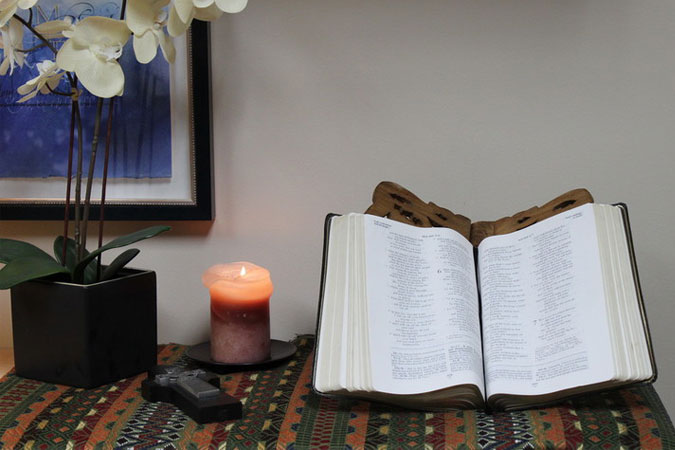
There are many ways to enter into Lent and to draw from the riches of the season and its Scripture readings. One very effective way is to focus on the Old Testament readings for each Sunday of Lent (this year, Cycle B). During Lent, the Old Testament readings stand by themselves in many ways, which means that we shouldn’t try too hard to bend and shape them to connect with the second reading or the Gospel, lest we find ourselves in the shape of a pretzel!
In Cycle B, the Old Testament readings focus on God’s promise of salvation and provide a thumbnail sketch of that promise over salvation history.
- First Sunday: the first promise of the covenant made to Noah (Genesis 9:8–15)
- Second Sunday: Abraham’s faith in God’s promise is tested. (Genesis 22:1–2, 9a, 10–13, 15–18)
- Third Sunday: God’s promise of the Law is fulfilled. (Exodus 20:1–17)
- Fourth Sunday: God’s promise of liberating a people in exile (2 Chronicles 36:14–16, 19–23)
- Fifth Sunday: God’s promise of a new covenant (Jeremiah 31:31–34)
Hope is built on promises, and Christian hope does not disappoint. Why? Because our hope is based on a promise kept. Jesus is the fulfillment of a promise that God made to his people long ago, to establish a new covenant with his people—sealed in his own blood.
As catechists, we are proclaimers of a promise kept. We are proclaimers of hope! Those we teach are in need of knowing that God keeps his promises. As catechists, we proclaim a new covenant, which we enter into through Baptism and celebrate in the Eucharist.
Here at Catechist’s Journey and Loyola Press, we have a plethora of resources for you to draw from to proclaim God’s promise—made and kept! Be sure to check out these wonderful resources:





Be the first to comment